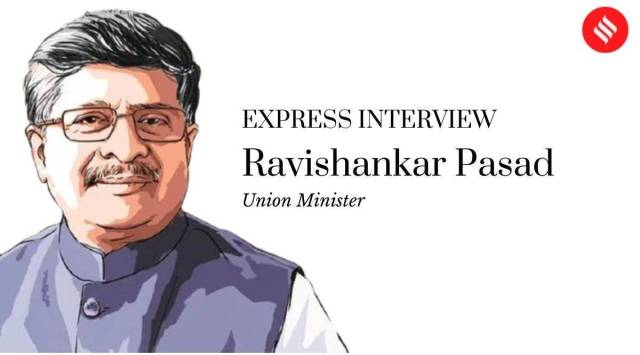
The Congress in its 2019 election manifesto promised to repeal the APMC Act. Even before that, the Congress-led UPA government was discussing reforms in the agriculture market. The Planning Commission recommended in 2011 itself a need to amend the APMC Act. Who was the Chairman of the Planning Commission? Prime Minister Dr Manmohan Singh… The 2003 Model (APMC) Act came when Mr (Atal Bihari) Vajpayee was in power. For 14 years they were promoting the need to deregulate this sector, facilitate trade, and liberalise the market, the mandi.
Read | Continue talks, Govt committed to hear farmers, address issues: Law Minister
This consultative process is very important… The high-power committee of the NITI Aayog, which included Chief Ministers Amarinder Singh, (then CM) Kamal Nath, Naveen Patnaik, Manohar Lal Khattar and Yogi Adityanath, emphasised the need to accelerate the food processing sector, draw more investment in agriculture… (and) stressed upon amendment in the APMC and Essential Commodities Act. Therefore, there has been almost a bipartisan consensus for close to 20 years — liberalise the APMC Act; open trade for farmers; give choices to farmers; and bring in private investment…
In an interview in 2005, then Agriculture Minister Sharad Pawar was asked when he saw the APMC Act being abolished. Pawar answered, ‘It will take six months maximum… Until and unless you are ready to amend the market Act and allow the private sector in this area, there will not be any financial support from the government of India to states.’ He went to this extent.
The UPA had many components — the Congress, SP, RJD, CPI, CPM, TDP, Mamata di (Banerjee)… Therefore, the first issue is that the real interests of farmers must be rescued from the political interests of Opposition parties.
Story continues below this ad
The new laws require disputes to be routed through officials like sub-divisional magistrates. Was it a proposal from the Law Ministry?
I don’t see any problem. There are so many laws where the district administration is involved.
But the government has now offered to make a change in this provision…
(It’s) Just to enable a congenial atmosphere to talk… How is this (emerging), that ‘no talk, unless you repeal’. The whole thing started with MSP, an assurance on that, from the dharna in Punjab… It’s now repeal the laws.
What is the way out?
Story continues below this ad
Democracy is ultimately dialogue. Democracy is ultimately persuasion. Democracy is ultimately reaching out. The Prime Minister very beautifully put it yesterday (Thursday) in a different context—kuchh kahiye, kuchh suniye (speak and listen). This kahiye, suniye is going on for the last 20 years.
Some of the farmers’ concerns had been raised by the Opposition in Parliament. Why didn’t the government send the Bills to standing committees?
Was scrutiny done or not?… The finest minds, from Dr (M S) Swaminathan and the Planning Commission, to Manmohan Singh, the economist Prime Minister, and Sharad Pawar, the farmers’ interest protector, to so many CMs. Did they elaborately discuss or not?
Why was the government in a hurry to pass these laws in the middle of a pandemic?
Should the country stop during a pandemic?
Story continues below this ad
The last Modi government had backtracked over an ordinance in the Land Acquisition Act, 2013. Why can’t the government repeal the farm laws?
The PM took the position (then) that instead of the Central government coming with a central law, it was advisable to leave acquisition to the discretion of states. Many states took that position… (In this case), the reform is part of the overall process of empowering farmers… Where is the denial of the rights of states?
Will the government take steps to amend the farm laws?
The Agriculture Minister has appealed to the farmers to come and discuss… Our hope is that more and more persuasion will make them realise that there is light at the end of the tunnel and ultimately it (the change) is in their interest.










